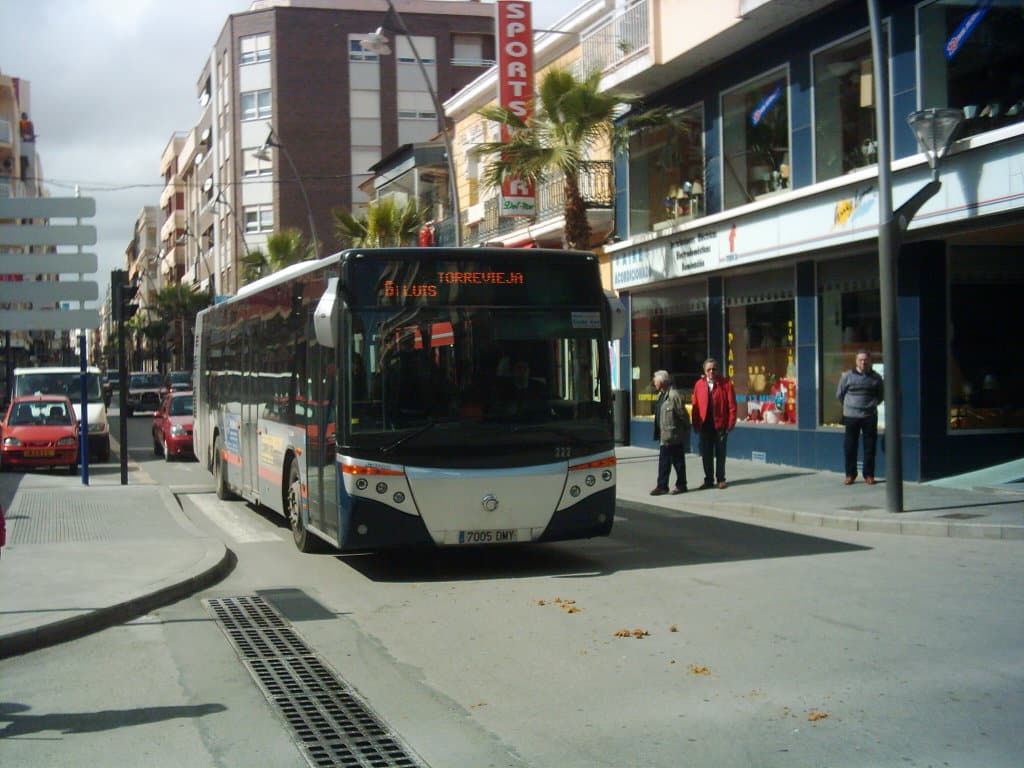Torrevieja town hall has published the draft ordinance whereas the municipal bus service will no longer be free for registered users, but passengers will now have to pay 1.35 euro per trip.
For 23 years the town has operated the service for free for those who subscribe to a special card which costs 7 euro. As a result, some 77% of bus users in high season and more than half in low season use the service for free.
The ordinary ticket will cost €1.35/trip, an amount that will be reduced with the purchase of the multi-trip voucher to €0.90/trip. This voucher will allow unlimited travel for 30 days on all lines, while the special multi-trip voucher for young people, schoolchildren and large families will cost €0.65/trip. An ordinary 30-day pass will also be available for 38 euro and a special 30-day pass (young people/students/large family) for 25 euro.
There is some hope for a small number of residents however, as those over 65 years of age, retirees or with a degree of mental or physical disability greater than 55%, will be entitled to apply for a “Gold Card” to continue accessing the service for free.
The draft ordinance aims to make the service more self-sufficient, saving a significant cost to the town hall’s coffers, ultimately paid for by all the residents of the town, and shift the charge onto those who use the service.
However, the contract for providing the new bus service in the municipality will cost the town hall eight million euro for ten years, more than double what the municipality now pays to Costa Azul, a subsidiary of the multinational group Avanza, although this does include the renewal of the entire bus fleet and the expansion of lines.
The new urban transport service will have three night routes, although available only on demand, for the neighbourhoods farthest from the centre. It will also have a new circular line and eight connecting the centre with neighbourhoods, housing developments, public services such as the Hospital, all the educational centres and the market, compared to the 7 that it has at the moment.
In total there will be 32 buses with hybrid technology those that will cover the mobility service of the municipality with the aim of substantially improving the current poor transit frequencies, with reductions in waiting time of more than 50% on average on all routes with the increase in transit frequencies, the main shortcoming of the current service.
Urban transport has been free in Torrevieja since 15 April 1999 for those registered, a measure adopted two months before the municipal elections of that year by Mayor Pedro Hernández. Since then, the service has been run by Costa Azul, first through an intercity traffic concession agreement without a competition, and since 2012, without a contract, it is paid at an approximate cost of 240,000 euro per month.
The new ordinance explicitly assumes that urban transport will be carried out through the award of an indirect management model, delivered to a company, a model that the plenary session of Torrevieja has not approved but that has the support of the majority of government of the PP and the reports commissioned by hand from an external company where it is ensured that it is the most effective and economical management formula, as opposed to municipalisation or mixed companies.
The new rates will be applied at the time that the council awards the service to a company sometime this year, although it will still need plenary agreement to rule out direct management, which it is likely to get from the majority ruling Partido Popular.





